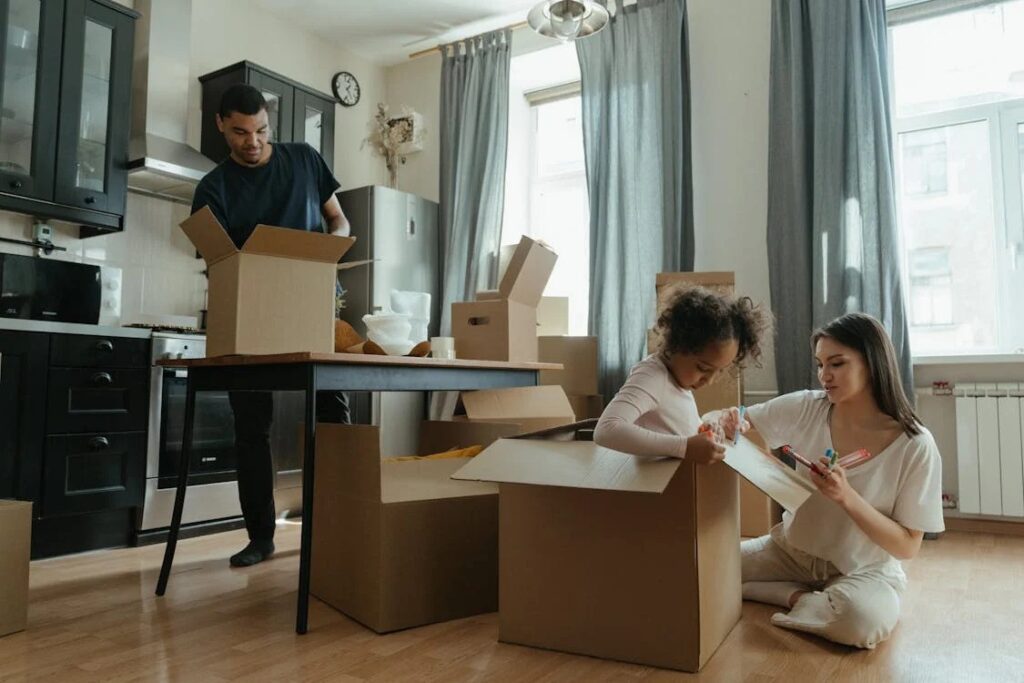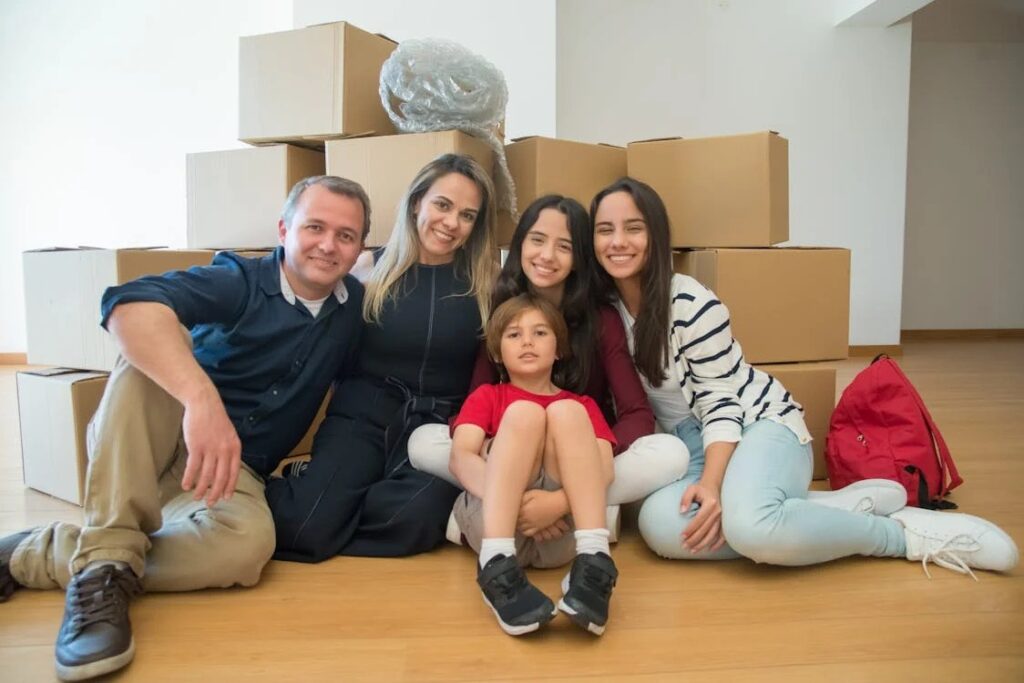A child’s smile is enough to light up a dark room. People without children often enjoy the presence of children. But while children may be a ray of sunshine and can make people, especially their parents, happy at the sight of them. A child can be an extra layer of stress during a move alongside all the other things preoccupying a parent’s mind. Being a parent does not stop when you are moving, meaning you must pay attention to your items as they get moved in preparation for one of the most significant moments in your life. But you must also pay attention to your child’s actions and possible anxiety brought on by the confusion they may be experiencing. This dual responsibility under moving with kids circumstances can be incredibly challenging for both you and the child, but there are ways to minimize this stress for you and the child.
Different Ways to Help Make a Move Easier When You Have Kids
Below, we will look at ways to help make a move easier when you have kids.
Communicate with Them What is Happening

A child, regardless of age, is going to experience some form of anxiety when a significant change is taking place. For many people, but especially a child, the most significant change they can experience is moving to a new location. Even if within the same general area, they may have developed friends and memories that they wish to avoid setting aside. It’s important to remember that and create a dialogue between you and your child so they understand what is taking place. Give them a few months to process and prepare for what is about to happen, and keep an open door policy. Give them the ability to ask questions to help make the transition easier.
Get them Involved
You want the child to be as involved in the process as possible. This involvement could be helping you pack boxes, creating a list of the items you bring, or even having them help choose the moving company. Then, on the moving day, they could assist in placing the boxes on the truck. If you have pets, they could watch over them. Give them the ability to feel a part of the process. This inclusiveness will allow them to develop a more positive perspective around the move instead of feeling like this is something forced upon them.
Hire Someone to Watch Over the Child
If the child is too young to have any significant input on the move, it would be advisable to hire childcare. Whether a friend, family member, or professional, bring in someone you feel comfortable watching over your child so you can focus all your attention on the move.
Bring them to the New Residence Before the Move
If the residence is nearby before the move, take the child to look. Allow them to look over not only the residence but also the neighborhood. Walk around with them, ask them what they think, and point out the positives of the neighbors. Allow them to soak in the new environment, see the potential, and feel more comfortable with the new area before the move.
Pack Their Room Last
One of the most critical possessions a child has in a house is their room. This room is an area that they have created to their liking; all of their possessions are in the room. While inevitable, try leaving their room untouched until the very last moment. Even if they know the move is coming, this allows them to hold on to the old for as long as possible before they have to experience the new.
Keep Up Your Daily Routine
The aim is to keep a child from feeling like the move will be a dramatic upheaval of their life. They may experience this on the day of the move and the beginning of adjusting to the new place, but you want to hold this off for as long as possible. One way to do this is to keep up with daily routines. Do not make any significant changes to how things operate inside the house. If you eat every day at seven o’clock, keep this going for as long as possible, even if you have already packed some kitchen items. If you have to transfer them to a new school, but at their current school, they have after-school activities. Keep them in these activities for as long as possible before pulling them out.
Help them to Stay in Contact with Their Old Friends

Friendships do not have to end because two people no longer live in the same area. Help your child maintain their prior connections. Have them call their friends every once in a while and schedule play dates or meetups. Do not allow their friends to be memories; keep them in your child’s life for as long as they wish to have them.
Join Groups or Organizations
Once you arrive in your new residence, you want to connect them with the neighborhood and its people. Get your kids involved with local initiatives, volunteer groups, or organizations. This community involvement will get them out of the house and subsequently out of their minds, allowing them to develop new friends. The sooner they acclimate to the new environment, the sooner they feel comfortable and release their sadness about moving from their old residence.
Give Them Time
Every child is different; thus, their reaction when getting the news of the move and arriving at the new residence will be distinct. There is no set time for them to adjust; each child operates on their old clock. Never try to press the issue or force new things upon them. If you arrive at the new residence and they are still a little troubled or when you inform them of the move, and it hits them hard, give them the time to wrap their heads around the change. But always remain available to talk with them whether what they have to say is negative or positive.
Speak Positively of the Move
When dealing with all the stresses of a move, openly speaking negatively about it is easy. While in private, this may be okay; always try to keep the language positive around the child. Children feed off of their parents, so if you are stressed, then they will be stressed. They will not want to move if you do not want to move. Keep the energy and language positive for the move’s duration so they do not feel this is a mistake.
Conclusion
The name of the game when moving with kids is comfort. You want to make the child feel as comfortable as possible about the prospect of the move and the new adventures that await them. You don’t want this to be an event that they have no say in or that happens without their knowledge. Getting them involved and supporting them through this process will give them the comfort they need. For more such information visit Ouch My Back Moving.
